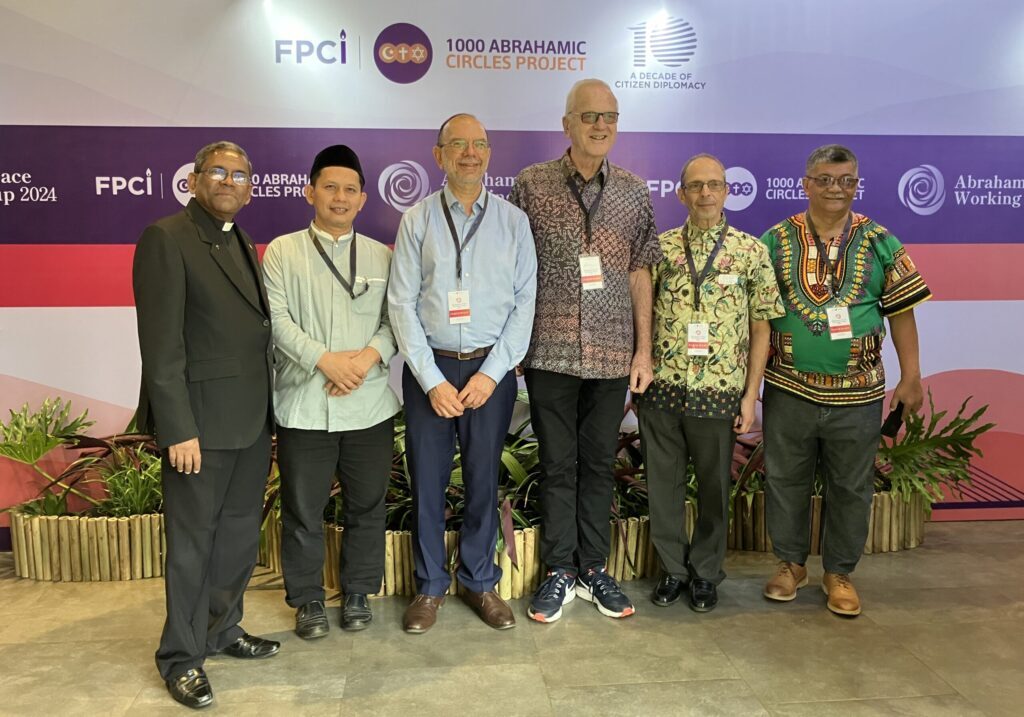Australia/Israel Review
Asia Watch: Two Tracks
Dec 19, 2012 | Michael Shannon

Michael Shannon
Indonesia’s public stance towards Israel – established by a long precedent – is still characterised by loud, almost ritualistic denunciations and rejections, yet equally established is the precedent of pragmatic, private flirtations, including the constant stream of tourists and visits by influential journalists and powerbrokers.
Nonetheless, Israel’s “Operation Pillar of Defence” in Gaza during November attracted vocal criticism, with calls to isolate Israel for its attacks on Palestinians, for all Islamic countries to cut their ties with Israel, and for international action to bring the attacks to the UN Security Council and the International Criminal Court.
On the street, anti-Israel protests in Indonesia lack any obvious Israeli target so they are routinely directed at the US Embassy. Members of the Islamic Student Association rallied waving Palestinian flags, holding banners that read: “Save Palestine from Israel, the terrorist” and hurled rocks and eggs outside the embassy, forcing the anti-riot squad to fire tear gas to disperse the crowd.
Two days later, to the surprise of no-one, the Islamic Defenders Front (FPI) emerged – distributing registration forms to volunteers willing to wage jihad against Israel at a protest in front of the US Embassy. The hard-line group declared they already had some volunteers – including FPI paramilitary commander Munarman – and that they planned to send FPI members to Palestine regardless of visa requirements.
These recruitment drives have never verifiably produced fighters on the ground in the Holy Land, but it’s a theatrical way to get attention for their cause and the FPI is all about being noticed.
“They will, inshallah [God willing], depart with other volunteers,” FPI deputy chief Bernard Abdul Zabbar said on the sidelines. “Whether they permit us to go or not, we will still help volunteers who wish to go.”
On the other hand, while Indonesian Foreign Minister Marty Natalegawa was refused a transit via Israel (to visit the Palestinian territories) three months ago after failing to obtain the required clearance from Israel, going through the proper channels or having a trusted sponsor can make a difference. Amidst the Gaza protests, the Jakarta Post seized upon a report in Haaretz about the visit of an Indonesian Security Council official to a conference in Tel Aviv, with the Post describing the official as “enjoying Israeli hospitality” while Gazans faced “an onslaught of air strikes and shelling by tanks and naval gunboats.”
The unnamed official, a guest of Ramzi Gabbay, Chairman of the Israeli Export Institute, an arm of the Israeli Ministry of Industry and Trade, reportedly roamed the Homeland Security conference without an identifying badge, though other attendees had them.
Indonesia’s Security Council is tasked with the nation’s cyber-security and warfare infrastructure, so the visit was cleared at the highest levels.
Similar flexible access did not, however, extend to an Israeli legal delegation en route to attend the LawAsia conference on the resort island of Bali – the two Israeli lawyers had their visa applications rejected without explanation by the Indonesian embassy in Bangkok.
“They should be able to enter the country,” Otto Hasibuan, Chairman of the Indonesian Bar Association, told the media. “But maybe there were other considerations,” he said, intimating at the political climate during the Gaza conflict.
Of course, most of these two-way complications would disappear if Indonesia enhanced diplomatic contacts with Israel but despite a trade relationship measured in the hundreds of millions annually, Jakarta’s stance remains cautious.
Warmly welcoming the November 29 vote to upgrade the Palestinians’ status in the United Nations, Foreign Minister Natalegawa said that only when Palestine is fully independent will Indonesia be ready to open diplomatic ties with Israel.
However, he also encouragingly stipulated that Indonesia believes that “Palestine’s full membership is consistent with the shared vision of a two-state solution, in which the nations of Palestine and Israel live side by side in peace.”






